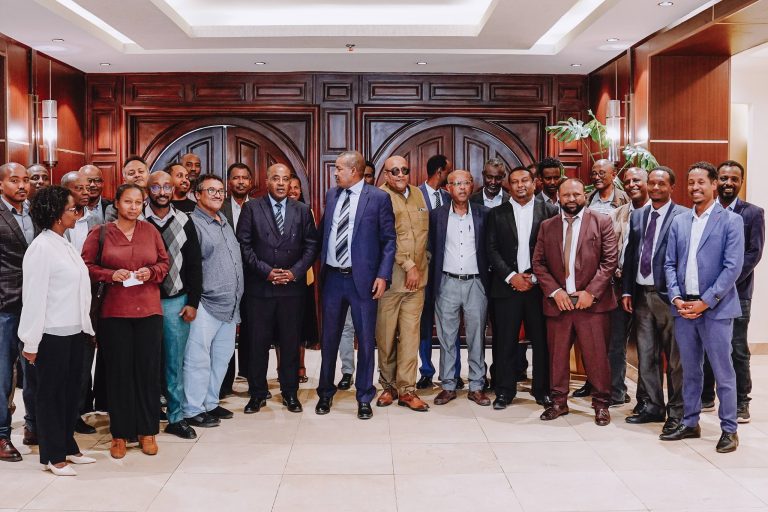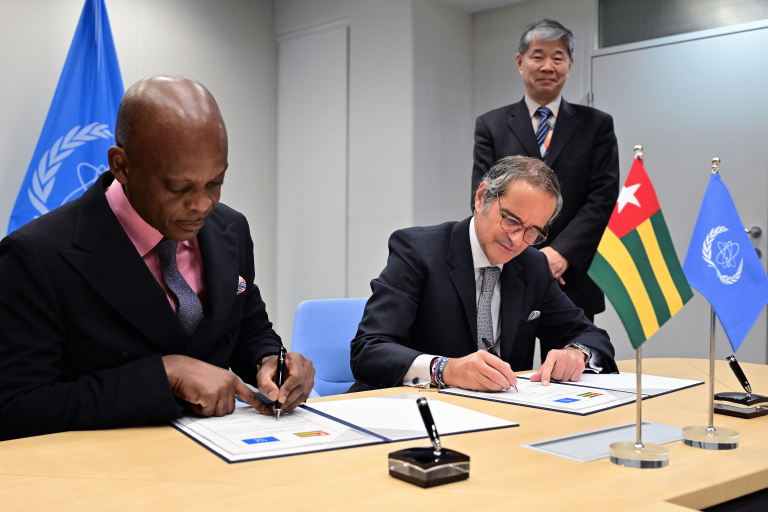
In a landmark move, Ghana is set to commission Africa’s first NuScale Small Modular Reactor (SMR) simulator training center, known as the E2 Center, on Thursday, January 16, 2025. This state-of-the-art facility is poised to be a hub of excellence for training Ghanaian and sub-Saharan African nuclear professionals in small modular reactor operations.
The E2 Center, located at the Graduate School of Nuclear and Allied Sciences under the Ghana Atomic Energy Commission (GAEC), represents a significant milestone in Ghana’s nuclear energy ambitions. A team from the NuScale Energy Exploration Center, supported by the Nuclear Power Institute (NPI-GAEC) and other stakeholders, has successfully installed all the required equipment to operationalize the center.
A Vision for Excellence
The Acting Director of the Nuclear Power Institute, Dr. Archibold Buah-Kwofie, highlighted the facility’s transformative potential during a recent visit. “This center will not only train students from tertiary institutions and non-licensed operators but will also serve as a platform for public education and awareness on nuclear technologies,” Dr. Buah-Kwofie said.
The E2 Center has been seamlessly connected to NuScale’s Energy Exploration Center at its headquarters in Corvallis, Oregon, USA. This connection ensures that the training adheres to the highest international standards of nuclear safety and operation, equipping Ghana for its first nuclear power project.

The Role of SMR Technology
Ghana has identified SMRs as one of two nuclear technologies to drive its industrialization agenda. NuScale’s SMR technology, which employs advanced light water technology, is scalable and flexible. Each SMR module generates 77 megawatts of electricity, and a single plant can accommodate up to 12 modules, producing a total output of 924 megawatts.
Dr. Buah-Kwofie noted, “The modular nature of SMRs allows us to bring units online based on demand. Each module can operate independently, making it possible to dedicate specific modules for diverse needs.”
Strategic Partnerships and Funding
The E2 Center is part of a $1.75 million funding initiative under the U.S. Department of State’s Foundational Infrastructure for Responsible Use of Small Modular Reactor Technology (FIRST) program. This funding supports the establishment of the facility and the development of a welding certification program to bolster the nuclear industry in Ghana.

Through the FIRST program, the United States has provided technical support and stakeholder engagement assistance to help Ghana achieve its nuclear energy goals. Ghana has also signed cooperation agreements with international vendors for both large and small modular reactors, underscoring its commitment to diversifying its energy mix.
Pioneering Nuclear Energy in Africa
Ghana’s foray into nuclear energy is aligned with its policy to integrate nuclear power into its electricity mix by 2034. This initiative aims to reduce the nation’s dependence on fossil fuels, mitigate climate change, and ensure energy security for future generations.
The country is already in the second phase of its nuclear program, having identified preferred and backup sites for its nuclear plant. Nuclear energy will serve as an alternate baseload power source, addressing challenges such as limited hydro resources, declining gas reserves, and the need for affordable industrial power tariffs.
A Bright Future
Despite delays in formal announcements and the commercial deployment of SMRs, Ghana remains a trailblazer in nuclear energy on the African continent. The international nuclear community views Ghana as a leader in adopting innovative solutions to secure a sustainable energy future.
The launch of the E2 Center not only underscores Ghana’s dedication to nuclear energy but also positions the nation as a hub for training and innovation in Africa. As the countdown begins for the commissioning of this groundbreaking facility, Ghana stands on the brink of a new era in energy and industrial development.


